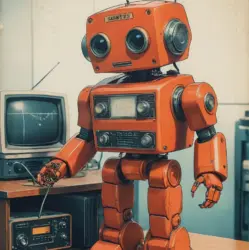In Brian Christian’s The Most Human Human, he first explains some of the early experiments in human-like chatbots – Eliza the therapist and the more recent attempts to “understand” language through the vast equivalent documents the UN keeps record of.
He also goes in to the question that plagued early industrialism, will robots be getting our jobs with AI? Well, if something is a repetitive and arduous task, as he puts it, you are the robot. In the art world an actor may do a play for a weekend or two… and no more – is that a waste? In his words:
It’d be tempting to think that you spend a certain amount of time learning what to do, and the rest of the time knowing what you’re doing, and simply doing it. The good actor will refuse to let this happen to him. The moment it does, he dies. A robot takes his place.
Brian Christian, The Most Human Human p.97
This also describes problems in many cases easily solved with recent tools like easily accessible Python scripts. In Automate the Boring stuff with Python for example, there are many example of traditional busy-work that can be automated using the free libraries we now have at our disposal.
Speaking of “boring stuff” the next chapters go on to some philosophizing of language and computers, after some somewhat interesting thought as to the intelligence of computers in Chess – both humans and computers use the well known end and beginning moves, and in Checkers for example, competitions among humans have for some time required a random starting move to get out of the generally well known moves.
It compares our regular human communication to artificial chat bots in that conversation is “barge-in-able” with several different thoughts going through a conversation with two or more people. Hence the word “uh” or “um”, to not cede the conversation, a tactic that is advantageous in Jeopardy for example (p163) giving a split second when you know you almost have the answer. That is an advantage to humans. Some languages have a “mu”, a word that means all answers to question are false, or question is a false. (eg “Have you stopped beating your wife”).(p176)
Various other comparisons are alternately interesting and inappropriate, and it doesn’t talk much of the programming work needed to make a chat bot. Nor does he ponder how God built us humans with ability for our language AND a free will, versus how a computer can be programmed only to do specific code or to do such things it does randomly (or some combination of both). Overall, if you are a linguist you might get something from this book but I wouldn’t recommend it. Rather it would be more useful to understand how to let the computer be the “robot” for automation instead of you working on monotonous tasks – The Python automation book and other programming and AI tutorials such as Pyimagesearch‘s would be a more useful way to understand artificial intelligence and programming.
